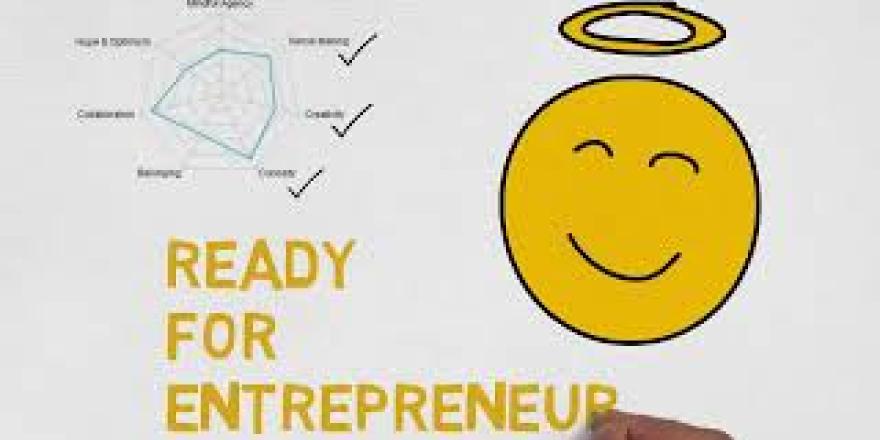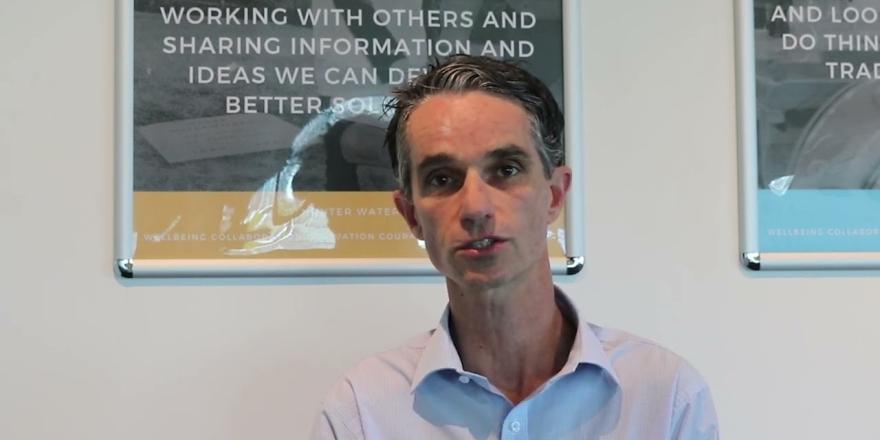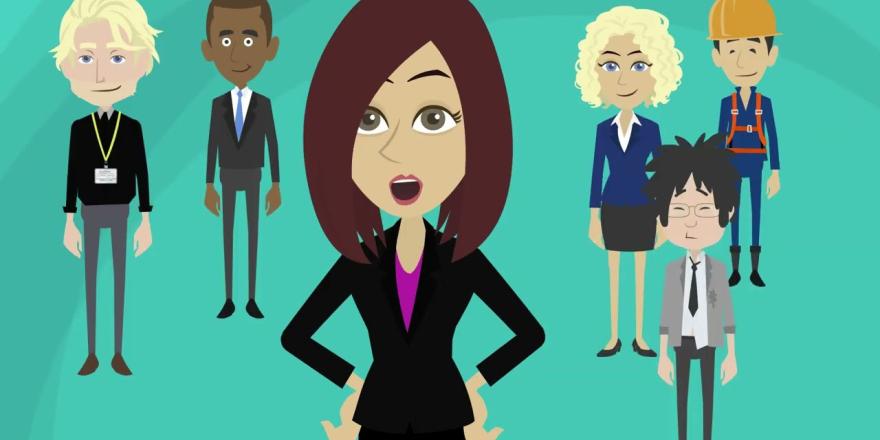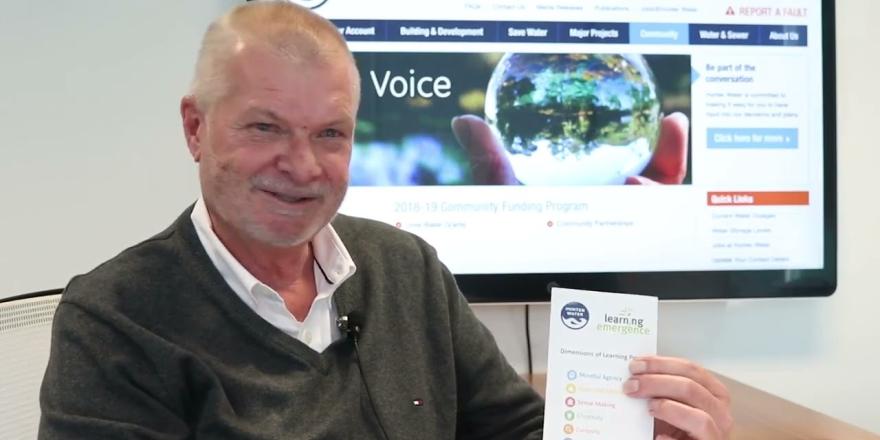Once you’ve completed your Learning Power profile (Step 2 of your Learning Journey, and Step 4 if you revisit it), you need to decide which aspects speak most to you, and what you want to stretch further (like a muscle).
Here are some options for you to consider, depending on whether you like reflecting on your own, or talking with others.
Online resources
The Learning Journeys platform gives you a range of suggestions to help you reflect on each aspect of your profile, and decide which one(s) you want to work on next.
Stories about fictional students
These student stories (Word Doc, 5Mb) illustrate Learning Power profiles for a range of fictional students. UTS students have found these helpful to read, when reflecting on their own profiles. This is a Word doc so you can add your own notes to it.
Stories from students and staff
Watch this video to see how one student made sense of his Learning Power profile, applied it in a project, then checked to see how his profile had changed. (Note that when this video was made, the diagram was called a CLARA profile)

hello
this is stefan he studies business at
the university of technology sydney
over the last semester he participated
in a course called management research
project in this course stefan performed
sora research on a current industry
topic in his work he focused on legal
issues related to the rise of the
sharing economy his goal was to identify
challenges for legislators on the way
into a shared future
based on rigorous research he was able
to draft a report that gives valuable
recommendations to governments around
the world on how to enable the sharing
economy to prosper and at the same time
mitigate risks that come hand in hand
with this development
nevertheless
the aim of this video is not to give you
insights on stefan's research but to
show you how he has improved as a
learner over the course of the last 12
weeks
in the first week of class stefan was
introduced to clara
and noah that's unfortunately not a girl
in his class
clara is a tool that helps you to
understand and improve your capacity as
a learner at the beginning of the
semester stefan completed the clara
survey
based on various questions he received
his personal clara spidergram on there
his abilities as a learner are presented
and assessed along eight different
dimensions these dimensions aim at
creating awareness of one's current
learning identity and purpose it also
gives an idea of improvement and helps
to develop strategies for future change
extremely important for stefan's
learning journey was the first
conversation with his coach mingming
together they looked at his profile and
talked about the various dimensions by
asking questions mingming enabled him to
interpret his clara profile identify
strengths and weaknesses and develop
strategies for future improvement
stefan scored very high on the
dimensions creativity curiosity and
sense making
this was very encouraging for him
because he has one big dream in his life
he wants to become a successful
entrepreneur
these strengths will help him to learn
new things appreciate uncertainties and
identify potential business
opportunities
really surprising to stefan were the
comparably low scores on hope and
optimism as well as belonging he
actually sees himself as a very positive
person who approaches learning
challenges with a can-do attitude and
the appreciation for new learning
opportunities
also stefan considers himself as a very
open and outgoing person and thinks that
he has access to good networks of people
with similar learning objectives that
help him along his learning journey
however his coach ming-ming found a
great explanation for this surprising
outcome given the fact that at this
particular point in time stefan had only
been to australia for roughly two weeks
the low scores on these two particular
dimensions were not a big surprise to
the coach
mingling explained that this only
reflects the challenges and fears that
come hand in hand with such a big change
in life
moving to a new country is always
difficult the coach predicted that the
scores in these dimensions will rise
throughout the semester as stefan will
settle in and get to know new people
another big surprise for stefan was his
low score on mindful agency
the conversation with his coach showed
that he is very well aware of the fact
that it's not very thoughtful and
organized when it comes to learning
stefan usually approaches his learning
very spontaneously and his planning and
structuring is a waste of time the same
applies to active reflection on his
learning activities
the coaching made really clear to him
that this is a true weakness and one of
the reasons why he continuously
struggles with deadlines and
consequently has to pull exhausting
all-nighters
realizing this weakness was really
important and valuable for stefan he
decided to work on his mindful agency
throughout the semester by structuring
his work in a better way and using tools
like to-do lists or gantt charts for his
tasks at uts at the end of the semester
stefan completed the second clara
profile
hope and optimism as well as belonging
went up considerably ming wing's
forecast became a reality having settled
in in sydney and failing feeling very
comfortable with the new environment had
a very positive effect on these two
dimensions
also the score in mindful agency
increased a bit reflection on a regular
basis as well as being more structured
in terms of working really paid off not
a single all-nighter was needed to
finish the assignments of the last
semester
one really great insight was
that the combination of extremely high
curiosity and a weakness in mindful
agency represents kind of a problem on
the one hand stefan's curiosity really
helped him throughout the semester to
gather valuable data for his project
on the other hand sometimes he just got
carried away by interesting articles and
went far off track in his research
this is time consuming and not
productive at all having realized this
was very valuable because he helps him
to be more mindful with his time and
more effective with his work
stefan knows that alban einstein once
said intellectual growth should commence
at birth and cease only a death
having this as a life motto for him the
introduction to clara was an extremely
useful learning experience he will
continue to work on his mindful agency
to become a better more reflective and
ever more efficient learner in the
future
[Music]
However, Learning Power isn’t just for uni — in fact it started in schools, as a way to assess important qualities not valued in traditional exams. It’s now used by professionals for their own personal leadership development.
So if you’re a UTS member staff, or a student preparing for a work placement or internship, learn more how managers at Hunter Water here in NSW benefited from working on their Learning Power.

hi i'm rob mayne i'm an engineer with
over 20 years experience working in
three different organizations
i've had many roles over that time and
i've learned a lot
but one thing that hasn't changed is the
way i learn my natural tendency is to
learn to achieve a specific purpose or a
task or a skill
which is perfect for high school
university and starting work but it's
not good enough for today in 2017 i
undertook a
for my fourth leadership program at
hunter water
but it was the first to spotlight
how important it is to learn and show me
how i learn and how i can improve my
learning
as part of the program i undertook a
hogan personality assessment and a clara
learning power profile
the hogan assessment showed two things
one you can't change your personality
and two you can change how you act if
you're aware of your personality traits
and i learned from this experience that
my personality traits support
and hinder the way i both lead and learn
my initial learning power profile
highlighted i was low on the scales of
collaboration belonging and mindful
agency
this ladder point measures the extent to
which i take responsibility for my own
learning
it's not where it should be
this feedback correlated with my hogan
profile it jogged me to change my
learning style the leadership program
encouraged me to take what i learned
from the program and apply it to a team
that i lead
and the non-revenue water program team
was the perfect opportunity
perfect because here was a topic i knew
almost nothing about and perfect it gave
me the opportunity to learn from within
a team so how have i gone
the starting point for me was about
creating an atmosphere of
comfort trust and confidence within the
team
they're essential steps if you want to
feel safe to be inquisitive and creative
i shared as much as possible with my
colleagues about the power of a team
learning together and having the right
learning attitude and appetite we soon
open up about each other's strengths and
gaps plus we're comfortable learning
from outside the team as well in
september last year in talking with
other planners i saw an opportunity to
improve the information we have in our
geographic information system here can
be the solution to people spending loads
of time manually looking through lines
of data and volumes of strategies to
plan network upgrades
the rob main of old would have supported
the idea and hoped someone else would
take the lead because i had no
experience at gis not this time i took
the lead and jumped into the unknown
knowing that i had colleagues with
knowledge and gis
and asset planning who would be happy to
share the knowledge with all members of
our newly formed team including me
the project hasn't been easy i've
stumbled a few times
but i have kept focus on my need for
learning and the learning of those in
the working group i'm persisting at not
missing a good opportunity
and just to wrap up i recently undertook
a second clara learning power assessment
i'm pleased to see improvements in
collaboration with belonging and mindful
agency
but i've still got a long way to go in
becoming a proactive learner learning is
important for everyone each of us should
challenge ourselves and our colleagues
about how we learn and how we're tapping
into the wisdom and learning the
experiences around us
and my takeaway tip to you find out
about your learning style strengths and
weaknesses
knowing these will help you be a more
effective learner both today and into
the future
good luck
you

hi I'm Sonia and I'm here to talk about
something we all do all the time
sometimes deliberately and sometimes
without even realizing it learning
in particular the aim of this video is
to give you an insight into my Personal
Learning Journey
how I've changed as a learner and as a
leader over the past 12 months my
Learning Journey started when I asked
myself why why is learning still so
important and yet so different
something that I've thought about a lot
is part of this experience today's world
is changing much faster than before
information is everywhere and it's
easily accessible
if you don't know the answer to
something you can Google it
if you need to learn how to do something
you can just watch it on YouTube
learning isn't just about studying and
gaining new knowledge anymore
it's about how quickly you can learn and
use that new information in the best
possible way
it's also about how to learn
and it's about new ways of thinking and
for me that was my first light bulb
moment that simply learning is a skill
and like any skill you need to
constantly work at improving it to
understand the way I learn I completed
the Clara self questionnaire back in
March 2017.
the tool organized my results in eight
different learning Dimensions with the
following results as you can see I
scored high in collaboration belonging
and also have an open Readiness to
learning this was encouraging as it
means that I'm comfortable learning with
others I have a network of people who I
can turn to and I'm also confident to
learn on my own
when I look at the dimensions that I
didn't score as high there were two
areas that stood out
hope and optimism and creativity hope
and optimism is about being confident
that you can change and learn
and so I was really surprised with this
result because I'm generally a positive
person and enjoy learning new things but
let me put this result in context the
Clara profile tells you how you see
yourself as a learner at a point in time
at the time of the survey there were
some changes in the organization and
within my area
I suspect my head was in the detail of
the changes meaning I was a little more
cautious than usual anyone who knows me
knows I'm more than a glass half full
kind of person to help improve in this
area I reflected on my past learning
experiences
during my time at Hunter water I've
successfully completed different roles
in really different areas and handle
challenging projects and situations
these range from working in HR to
economics learning Six Sigma and now
working in it
not as big of a surprise was creativity
and this is about risk taking it's about
playfulness and Imagination I tend to
focus on an issue or a problem at hand
and may pull back conversation if I see
it going off track
this in turn May limit exploring
different ideas and coming up with
unexpected and sometimes often better
Solutions
this required different approaches first
I discussed it openly to see what works
for others I share with my peers that's
an area that I'm working on and I ask
them to stop me by peer limiting I also
made some goals for myself one is to
listen to more TED Talks
but really I want to practice or
challenge myself to start thinking
outside of the box I'm aiming to come up
with multiple potential solutions to an
issue not just one I also want to be
more visual for example using the
Whiteboard more often and earlier in
discussions
from now on when I'm presenting I want
to use fewer words and use more pictures
feedback's always important so how am I
doing with this video
I recently retook the Clara assessment
and was pleased with the results as you
can see my profile is in general has
improved but I know the journey hasn't
ended and I know it's going to continue
to be an exciting trip and some of you
will share it with me thanks for
listening and I hope you have a great
Learning Journey too

[Music]
so um when I was first told by Lotz that
I was going to be on this program I took
a very open-minded approach um I've
always enjoyed learning um doing
research and looking for new things I
had no real expectations about whether
it was going to be any sort of
restrictions I was happy to find that it
was not aimed at accreditation
assessment it was actually something
that was tailored specifically for hun
water in its needs as part of the
program we um went through some
diagnostic tools we looked at our clar
profiles um Hogan assessment and also
360s so the good ones I got there was
the the fact that um I tended to look
like I was a good coaching and mentoring
person and I intend now as a strength to
use that skill more often with my team
and anyone else it's sort of willing to
listen the learnings I've got from the
program um worked along what how I
respond and how I work and how I've
tried to talk to my team members and my
other people about what sort of things
they do it's a thing called
the left hand margin and that to me is
the things that you think about but you
don't say a lot of us basically will
either blurt that out or come out with
it quite regularly and it's a stop and
think thing it's actually you know
should I say that now is it the Right
audience is it the right people to say
it to is it the right time should I say
it at all which is hard to do as an
engineer um you've got to engage more of
that gray matter and become more gray so
there's areas that there you know it's a
measure twice cut once is that the right
response is that the only response can I
look at other things other other ways
that we can do this as well for the
remainder of the year and I guess for
the rest of my career is to try and make
it a permanent change which is what
learning is all about is to continue
along the lines of of having more
conversations engaging with more people
um and looking at what I've got there as
far as a work life balance is concerned
you know look at the things that are
important to me um outside work and
inside work saying when you go home or
when you go and do things that's not the
cut off point but you've got to
seriously think about how what you do
and how you act affects everyone else
both at work and at home this tool here
which is the learning power developing
learning power I've got that stuck on my
computer monitor now and I use that on a
daily basis particularly the ones I use
are the mindful agency and also the
sense making it's it's something that I
basically now live by on a day byday
basis so years ago um there was a song
by our ases called wonder wall um and I
was thinking about it and as a result of
I created a wonder wall in my office so
I've got pictures up there of my family
my kids my grandkids parents and I've
also got some stuff out there out of the
program that Ruth and Gus have given me
um including this which is up there as
well I use that on a day-to-day basis
just you have a stop and think moment
where you sort of sit and look and say
well what can I use out of that in both
my day-to-day life at work and at home
and um see how it works out and it gives
you inspiration so also from my past
life um a thing that I got from my dad
um and I don't know where he got it from
I don't know if he made it up or not I
never got the chance to ask him but um
it's it's a slogan that he used to use
and that was the harder you try the
better you get and the better you get
the more you try and it's all about
being better than before um and it's
it's worked quite well for me and I use
it on a a very frequent basis one of the
other things I got from um previous
education my formal education was from a
uni lectur a long time ago um his adage
that he used and knowledge is like a
grain of sand so um the analogy was
drawn on the fact that if you believe at
any stage you have all of the knowledge
in the world everything that everyone
would ever know um related back to the
fact that all you really know is nothing
more than a grain of scent on the beach
what I would engender to people to do is
to get engaged and continue to improve
themselves and what they
do
Discuss with your peers
We’ve found that one of the most powerful ways to learn is in discussion with others. If you can connect with two colleagues who also want to do this, then you can form a Coaching Triad:
- staff and students in UTS faculties have done this and found it helpful
- you meet online or face-to-face, for an hour once a week for (say) 3 weeks to see how it goes
- you don’t have to feel expert in any way — just be ready to listen, observe, and ask open-ended questions to help someone think about their profile — it’s all described in this handy Peer Coaching Guide! (PDF, 538K)
Connect with UTS and other groups
There are so many UTS organisations, it’s hard to keep track! But the list below has been compiled to give you ideas of groups, at UTS and elsewhere, you can connect with to build your Learning Power by committing to something and reflecting on how you handle its challenges.
- Beyond Blue
- The Big Lift
- BUILD
- Careers Service
- Carer’s provision
- Counselling at UTS
- Debating
- Financial Assistance
- Global Exchange
- Headspace
- HELPS
- MOOCs
- Peer Network
- Smiling Mind mindfulness meditation
- SOUL in UTS Shopfront
- Library services for students
- Toastmasters
- University clubs: (Social and sporting)
- U:PASS
- Volunteering opportunities across campus
UTS Counselling
In learning, a degree of challenge is good for questioning your assumptions, and stretching you out of your comfort zone! So if you find your Learning Power profile a bit confronting, ask yourself why that is.
But if you’ve found your profile deeply unsettling for some reason, you may want to talk that through with someone outside friends and family. Our friendly UTS Counselling service is aware of the Learning Journeys website, so make an appointment with them if you’d find that helpful.

